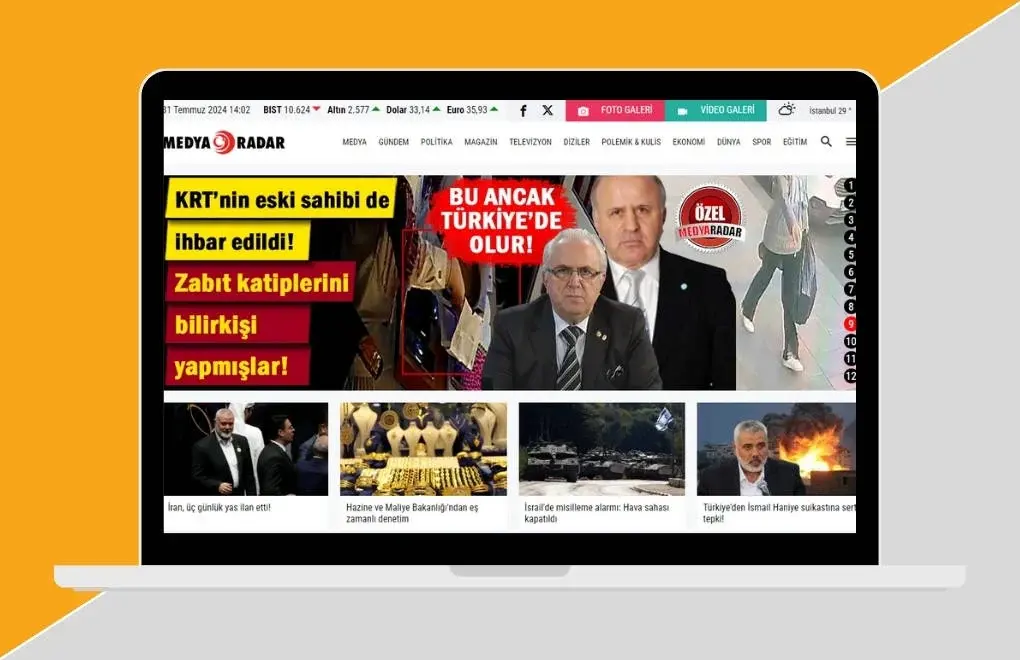The İstanbul 3rd Criminal Judgeship of Peace has blocked access to the well-known news site medyaradar.com, citing a complaint from the pro-government Kalyon Group’s Turkuvaz Media. The court decided to impose a total blackout on the site.
The dispute began when Turkuvaz Media requested the İstanbul 6th Penal Judgeship of Peace to block an article written by an author under the pseudonym Ekran Kedisi. The article included the allegation that many journalists were leaving the media group due to low wages. When this ruling was not implemented, the group took the matter to the İstanbul 3rd Penal Judgeship of Peace.
The court justified its decision by stating that the previous order was not enforced, and the site continued to host content violating personal rights. As a result, it ruled that the entire site should be blocked.
Representatives from medyaradar.com told bianet that they had not been notified of the court order to remove the article in question, though the content has since been removed from the site.
Law enforced despite annulment
Prof. Yaman Akdeniz, a faculty member at Bilgi University and the founder of the Freedom of Expression Association (İFÖD), explained the difference between content removal and access blocking. According to Turkish law, the responsibility for blocking access lies with the Access Providers Association (ESB), while the publisher is responsible for removing the content.
“The law foresees different sanctions for different scenarios. Blocking an entire news site amounts to censorship. Despite the Constitutional Court's decision to annul Article 9 concerning personal rights violations, the criminal judgeships of peace continue to issue these rulings until the annulment becomes effective on October 10, 2024,” he explained.
Online censorship in Turkey
According to the latest report by Free Web Turkey, censorship of media content is on the rise. In 2023, Turkey blocked access to over 219,000 links, including at least 14,680 news articles, through 783 court orders.
The majority of the blocked news articles related to corruption and misconduct (5,881 articles), followed by crimes against women and children (2,256 articles) and organizational crimes (1,733 articles). Public officials were the primary subjects of corruption-related articles (3,192), along with individuals and organizations close to the ruling AKP (1,133), and President Erdoğan and his family (646).
Overall, public officials topped the list of subjects in the censored news articles (5,150), followed by private citizens (2,580), individuals and organizations close to the AKP (2,575), companies (1,151), and President Erdoğan and his family (854). (HA/VK)






